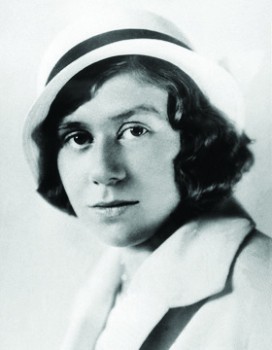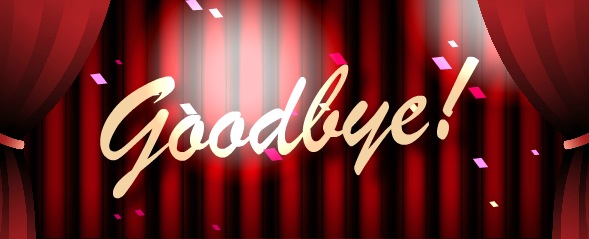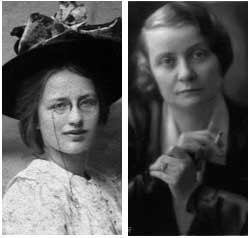Search results for "Edith Södergran/feed/www.booksfromfinland.fi/2014/05/another-morning-another-day"
RSS feeds
4 February 2009 |
Subscribe to our RSS feeds here.
- All categories: Books from Finland main RSS feed
/ Subscribe by email
By category:
- Fiction (extracts): RSS feed / Subscribe by email
- Drama: RSS feed / Subscribe by email
- Comics: RSS feed / Subscribe by email
- Poetry: RSS feed / Subscribe by email
- Prose: RSS feed / Subscribe by email
- Children’s books: RSS feed / Subscribe by email
- Non-fiction: RSS feed / Subscribe by email
- Reviews: RSS feed / Subscribe by email
- Authors: RSS feed / Subscribe by email
- This ‘n’ that: RSS feed / Subscribe by email
- Editorial: RSS feed / Subscribe by email
By subject (tag):
- Biography: RSS feed / Subscribe by email
- Children’s books: RSS feed / Subscribe by email
- Classics: RSS feed / Subscribe by email
- Contemporary art: RSS feed / Subscribe by email
- Finnish history: RSS feed / Subscribe by email
- Literary prizes: RSS feed / Subscribe by email
- Novels: RSS feed / Subscribe by email
- Photography: RSS feed / Subscribe by email
- Poetry: RSS feed / Subscribe by email
- Short stories: RSS feed / Subscribe by email
Breton without tears
31 March 1994 | Archives online, Fiction, Prose
Extracts from Euroopan reuna (‘The edge of Europe’, Otava, 1982). Introduction by H. K. Riikonen
I am reading a book, it says pour l’homme latin ou grec, un forme correspond à un être; pour le Celte, tout est metamorphose, un même individu peut prendre des apparences diverses, so it says in the book. A strange claim, considering that the word metamorphosis is Greek, and that the best-known book about metamorphoses, Ovid’s Metamorphoseon libri XV was written in Latin. In the myths of all peoples, at least the ones whose oral poetry was recorded in time, such as the Greeks, Serbs, Slavs, Finns, or Aztecs, metamorphoses play a very important part, the Celts are not an exceptional tribe in this respect. The author must mean that the Celts still live in mythical time, the time of metamorphoses when the human being assumed shapes, was able to fly as a bird, swim as a fish, howl as a wolf, and to crown his career by rising up into the sky as a constellation. Brittany is part of the Armorica Joyce tells us about in Finnegans Wake, that book is incomprehensible if one does not know Ireland, and now I see that Brittany is the key to one of the book’s locked rooms. I thought I already had keys to all the rooms after Dublin, the Vatican, and Athens, but one door was and remained closed, the key is here now, in my hand, I can get into all the rooms in the book, and I am home even if I should happen to get lost. The room creates the person, she becomes another when she goes from one room to another, this is metamorphosis, and when she leaves the house she disappears, she no longer exists. The legend on the temple at Delphi, gnothi seauton, know thyself, has led Occidentals onto the false track that is now becoming a dead end, polytheistic religions correspond to the order of nature, but as soon as the human starts to imagine that she knows herself, as soon as the metamorphic era ends, monotheism is born, the human being creates god in her own image, and that is the source of all evil. Planted like traffic signs at the far end of this cul-de-sac stand the hitlers and brezhnevs and reagans and thatchers, new leaves are appearing on the trees, the sun is shining. Landet som icke är* är en paradox: landet blev befintligt därigenom att Edith Södergran sade att det icke är. On the sea sailed a silent ship*, as I tracked my shoeprints across the sand on the beach, it was like walking on a street made out of salty raw sugar, I felt desolate. The wind bent the grasses, the sun warmed the back of my sweater, of course the sun always has the last word, I thought, things should be as they are, this thought gave me peace of mind. I walked past the cows, two of them already chewing the cud, the others still grazing, they stood in a line and raised their heads, stood at attention, as it were, as I walked past. I was not entirely sure that I was heading in the right direction, but then I saw the boucherie and knew that there was a café nearby. Madame greeted me in a friendly fashion, brought me a calvados and a beer and sat down for a chat, wanted to know if I liked the countryside here. I said that things looked the same here as in Ireland, she said that was true, but she had never been to Ireland. I finished my drinks and paid, left, decided to walk along the beach. I saw gun emplacements and two bunkers. I crawled into a bunker. Inside, it was dark and damp. I looked through the embrasure at the sea. I thought of the boys who had been incarcerated here. They had been given a death sentence. I examined a rusty object, what was it, I looked at it more closely, it was an axle from a gun’s undercarriage. As I arrive in my home yard, I note that the lilacs are beginning to bloom. More…
Books from Finland to take archive form
22 May 2015 | In the news
The following is a press release from the Finnish Literature Society.
The Finnish Literature Society is to cease publication of the online journal Books from Finland with effect 1 July 2015 and will focus on making material which has been gathered over almost 50 years more widely available to readers.
Books from Finland, which presents Finnish literature in English, has appeared since 1967. Until 2008 the journal appeared four times a year in a paper version, and subsequently as a web publication. Over the decades Books from Finland has featured thousands of Finnish books, different literary genres and contemporary writers as well as classics. Its significance as a showcase for our literature has been important.
The major task of recent years has been the digitisation of past issues of the journal to form an electronic archive. The archive will continue to serve all interested readers at www.booksfromfinland.fi; it is freely available and may be found on the FILI website (www.finlit.fi/fili).
Much is written in English and other languages about Finnish literature: reviews, interviews and features appear in even the biggest international publications. The need for the presentation of our literature has changed. Among the ways in which FILI continues to develop its remit is to focus communications on international professionals in the book field, on publishers and on agents.
The reasons for ceasing publication of Books from Finland are also economic. Government aid to the Finnish literature information centre FILI, which has functioned as the journal’s home, has been cut by ten per cent.
Books from Finland was published by Helsinki University Library from 1967 to 2002, when the Finnish Literature Society took on the role of publisher. FILI has been the body within the Finnish Literature Society that has been responsible for the journal’s administration, and it is from FILI’s budget that the journal’s expeses have been paid.
Enquiries: Tuomas M.S. Lehtonen, Secretary General of the Finnish Literature Society, telephone +358 40 560 9879.
Poems
2 February 2009 | Fiction, poetry
Edith Södergran (1892–1923) was born in St Petersburg to Finland-Swedish parents; she later lived in an isolated Karelian village on the Finnish side of the Russian border. She published only six collections of poetry, in her native Swedish, before her untimely death from tuberculosis and poverty at the age of 31. Her bold, intense, sensuous and visionary poetry has made her a classic of Finnish literature. Her letters to her friend, the writer Hagar Olsson, were published in 1955.
Violet dusks
Violet dusks I bear within me from my origins,
naked maidens at play with galloping centaurs...
Yellow sunlit days with gaudy glances,
only sunbeams do true homage to a tender woman’s body...
The man has not come, has never been, will never be...
The man is a false mirror that the sun’s daughter angrily
throws against the rock-face,
the man is a lie that white children do not understand,
the man is a rotten fruit that proud lips disdain.
Far from the madding crowd
21 February 2013 | Articles, Non-fiction

Saima Harmaja (1913–1937). Photo: WSOY
‘I don’t belong to the crowd,’ the young Saima Harmaja wrote in her diary in 1933. Her work as a poet was for her a vocation that superseded everything else. In her diaries she often speaks as a sociable young woman, with a delicious sense of humour, but her best poems seriously explore love, and death which cast its shadow over her. A selection of her poems – the best of which have made her a Finnish classic – is now published in English for the first time
In her diary the young poet claimed: ‘I think I would die if I could not write.’ What Harmaja shared with the poets of the early part of the twentieth century who influenced her was the private and personally experienced nature of poetry itself, rather than the realisation of any current aesthetic programme.
Harmaja is one of those poets whose works have passed through the hands of readers from decade to decade. She is also a prototype of the poet of her generation: gifts that led to the expectation of a brilliant career, a life that was brought to a tragic end by tuberculosis, leaving just five years of work as a poet. More…
Subterranean, pre-verbal
31 March 2007 | Archives online, Essays, On writing and not writing
Claes Andersson, poet and psychiatrist, ponders the difficulties of writing, and how to get down to it. These are extracts from the collection of articles, Luova mieli. Kirjoittamisen vimma ja vastus (‘The creative mind. The rage and burden of writing’, Kirjapaja, 2002)
Some subjects or ideas need years on the back burner before they submit to being written about. The wise writer learns the basic rule ofthe good midwife: don’t panic, don’t force, wait, and help when the time for birth is at hand, but know also when a Caesarean section is advisable or even necessary. More…
The Dancing Bear Poetry Prize 2014
7 August 2014 | In the news

Juha Kulmala. Photo: Kajaanin runoviikko, 2014
The Dancing Bear Poetry Prize (Tanssiva karhu -palkinto), founded by Yleisradio, the Finnish Broadcasting Company and worth €3,500, is awarded annually to a book of poetry published the previous year. In July, at a poetry festival – Kajaanin runoviikko – in the north-eastern town of Kajaani, it was given for the 20th time.
The winner was Juha Kulmala: his collection, entitled Pompeijin iloiset päivät (‘The merry days of Pompeii’, Savukeidas, 2013), is written in the vein of the ‘beat’ tradition of the poet’s home town of Turku; the landscape of the poems includes Finland and regions in Southern Europe.
The other finalists were Ville Hytönen, Harry Salmenniemi, Pauliina Haasjoki, Sinikka Vuola and Ralf Andtbacka. The prize jury, chaired by the poet Harri Nordell, chose the winner from almost 200 collections.
Yleisradio also awards a prize for the best poetry translation (Kääntäjäkarhu-palkinto) of the year, worth €1,100; this time it went, for the first time, to an anthology. Entitled 8+8. Suomalaista ja virolaista runoutta / Eesti ja Soome luulet (‘8+8. Finnish and Estonian poetry’, NyNorden, 2014) and edited by the Estonian poet and writer Eeva Park, the book contains poems by eight Estonian and eight Finnish poets, all published in Estonian and in Finnish, translated by twelve translators.
Time to go
29 June 2015 | Greetings
[kml_flashembed publishmethod=”static” fversion=”8.0.0″ movie=”https://booksfromfinland.fi/wp-content/uploads/2015/06/Books_Kesabanneri_2015.swf” width=”590″ height=”240″ targetclass=”flashmovie”]  [/kml_flashembed]
[/kml_flashembed]
Animation: Joonas Väänänen
We’ve often thought of editing Books from Finland as being a bit like throwing a party.
It’s our job to find a place to hold it, send out the invitations and provide the food and drink.
It’s your job to show up and enjoy.
![]()
Books from Finland is a party that’s been running since 1967 – for nearly fifty years.
In that time, we’ve served up almost 10,000 printed pages and 1,500 posts, a wide-ranging menu of the best Finnish fiction, non-fiction, plays and drama, accompanied by essays, articles, interviews and reviews.
We’ve had a ball, and to judge by the letters and emails we’ve received from many of you, you’ve had a good time too.
But now it’s time to go: the landlord, to stretch the metaphor, has called in the lease on our party venue. Faced with funding cuts in the budget of FILI – the Finnish Literature Exchange, which has since 2003 been Books from Finland’s home – the Finnish Literature Society has decided to cease publication of Books from Finland with effect 1 July 2015. Our archive will remain online at this address, and the digitisation project will continue. We won’t be adding any new material, though; this is, literally, the last post.
![]()
The party may be over, the lights and music turned off – but what about the partygoers?
They are doing what partygoers always do: they – we – are moving on.
Readers and writers, photographers and illustrators, everyone who’s helped, supported and enjoyed Books from Finland, thank you!
So long. See you around.
Hildi Hawkins & Leena Lahti
Shortlist for Finlandia Prize for Non-Fiction 2014
13 November 2014 | In the news
 The shortlist for the Finlandia Prize for Non-Fiction 2014 – worth €30,000 – was announced on 5 November by the chairperson of the jury, Susanna Pettersson, Director of the Ateneum Art Museum. The works on the list of six are as follows:
The shortlist for the Finlandia Prize for Non-Fiction 2014 – worth €30,000 – was announced on 5 November by the chairperson of the jury, Susanna Pettersson, Director of the Ateneum Art Museum. The works on the list of six are as follows:
Pohjolan leijona, Kustaa II Adolf ja Suomi 1611–1632 (‘The lion of the North. Gustavus II Adolphus and Finland 1611–1632’, Siltala) by the historian and author Mirkka Lappalainen deals with the implications of actions of the mighty Swedish king on the part of the kingdom that was known as Finland.
Herkkä, hellä, hehkuvainen – Minna Canth (‘Sensitive, gentle, radiant – Minna Canth’, Otava) is a fresh biography of the Finnish pre-feminist author (1844–1897), a popularised version of a dissertation by Minna Maijala.
Karanteeni. Kuinka aids saapui Suomeen (‘Quarantine. How Aids came to Finland’, Siltala) by Hanna Nikkanen & Antti Järvi records the history of the disease, its arrival and consequences in Finland.
Operaatio Elop (‘Operation Elop’, Teos) by Pekka Nykänen & Merina Salminen is the story of the mobile phone company Nokia in its declining years and its Canadian CEO (2010–2013) Stephen Elop, who did not become the saviour of the company on the global market.
Usko, toivo ja raskaus. Vanhoillislestadiolaista perhe-elämää (‘Faith, hope and pregnancy’, Atena) by Aila Ruoho &Vuokko Ilola focuses on the family life, particularly the status of the woman, of a fundamentalist religious community in Finland.
Tulisaarna. Einojuhani Rautavaaran elämä ja teokset (‘Fiery sermon. Life and works of Einojuhani Rautavaara’, Teos) by Samuli Tiikkaja (journalist, music critic and researcher) is a biography of the composer Einojuhani Rautavaara (born 1928).
The winner – according to the rules of the prize, it will be given to a deserving Finnish generalist non-fiction book – will be chosen by Heikki Hellman, journalist and Dean ofthe School of Communication, Media and Theatre in Tampere, on 19 November.
On the shortlist: Runeberg Prize 2014
12 December 2013 | In the news
On the shortlist of the Runeberg Prize 2014 are eight books. Four of them are novels: Lapset auringon alla (‘Children under the sun’, WSOY) by Miki Liukkonen, Jokapäiväinen elämämme (‘Our daily life’, Teos) by Riikka Pelo (which was awarded the Finlandia Prize for Fiction in December), Pintanaarmuja (‘Scratches’, ntamo) by Maaria Päivinen and Terminaali (‘The terminal’, Siltala) by Hannu Raittila.
The other four books on the list are two collections of poetry, Pakopiste (‘Vanishing point’) by Kaisa Ijäs (Teos) and Öar i ett hav som strömmar by Henrika Ringbom (Schildts & Söderströms). Ahtaan paikan kammo (‘Claustrophobia’, Robustos) by Riitta S. Latvala is a collection of short stories, and Kopparbergsvägen 20 (‘Kopparbergsvägen Road 20’, Schildts & Söderströms) by Mathias Rosenlund is an autobiographical work.
The list was compiled by a jury of three: cultural editor and critic Elisabeth Nordgren, author and critic Irja Sinivaara and author Jouko Sirola.
The prize, worth €10,000, was founded by the Uusimaa newspaper, the City of Porvoo, both the Finnish and Finland-Swedish writers’ associations and the Finnish Critics’ Association. On 5 February, on the birthday of the national poet J.L. Runeberg (1804–1877), it will be awarded for the 28th time in his native town of Porvoo.

